How can we make the case for freedom today?
Rob Lyons summarises an exciting discussion of Mill's harm principle at the Living Freedom Summer School.
On Thursday 11 to Saturday 13 July, the Living Freedom Summer School took place at the Art Workers’ Guild. Around 90+ young adults aged 18 to 30 came from around the world to discuss the big issues related to freedom. Organised by the charity Ideas Matter, there were discussions about women’s rights and Mary Wollstonecraft, anti-Semitism and censorship, the problems of demonising the past, and whether or not some protest should be restricted. In one session, Rob Lyons - science and technology director at the Academy of Ideas - discussed his Letter on Liberty pamphlet, Beyond the Harm Principle. The debate focused on the issue of how we defend freedom today. From the great thinkers of the past, who can we turn to in order to find arguments for liberty in the twenty-first century?
In this guest post for the Academy of Ideas Substack, Rob relays his introductory comments, and gives us some reflections on the discussion.
Here are my introductory comments, and then I’ve added some notes on the discussion.
I'm one of the team that organises the Battle of Ideas festival, a journalist and editor and occasionally a campaigner against all things to do with the nanny state. One thing I'm not is an academic philosopher. My interest in John Stuart Mill is a practical one - making the case for free speech and for personal freedom. On Liberty is an eloquent and powerful statement of why freedom matters, and one of its most famous elements is Mill's defence of the harm principle. Brilliant though that is, changing circumstances and modern sensibilities create, in my view, some important limitations in using the harm principle as an argument against attacks on our freedom.
The harm principle has been invoked in a huge range of settings - not just smoking, alcohol and food, things that I tend to talk about, but everything from gay rights to pornography, bar licences to prostitution. Therefore, understanding its strengths and weaknesses is vitally important.
Mill wrote On Liberty in 1859, well into his fifties. It was a response to a problem he perceived with democracy. Up until this period, societies were ruled by monarchs, with or without an aristocracy, or by some other kind of strong man or minority. That meant the question of freedom was simply the problem of preventing an individual or minority class from oppressing people.
But in an era of democracy, another possibility emerges: a tyranny of the majority. If the wishes of The People are to prevent a certain lifestyle or behaviour or, most importantly, the freedom to express your views, then this would be just as detrimental to freedom as the iron rule of some dictator or absolute monarch.
So, what is freedom? For Mill, the only freedom worth its name is to allow us to pursue our own good in our own way.
One aspect of this freedom is the harm principle. In any and every debate about smoking bans, minimum pricing of alcohol, pornography and, going a little further back, decriminalising homosexuality, this paragraph is bound to be quoted:
The only purpose for which power can be rightfully exercised over any member of a civilized community, against his will, is to prevent harm to others. His own good, either physical or moral, is not a sufficient warrant. He cannot rightfully be compelled to do or forbear because it will be better for him to do so, because it will make him happier, because, in the opinion of others, to do so would be wise, or even right... The only part of the conduct of anyone, for which he is amenable to society, is that which concerns others. In the part which merely concerns himself, his independence is, of right, absolute. Over himself, over his own body and mind, the individual is sovereign.
That is the basic principle and I think it is a very good one.
However, it's also the case, to use the old phrase, that no man or woman is an island. Very little of what we do has no impact on anyone else. We do have responsibilities to each other, too. And it's this that effectively curtails the power of the harm principle. For example, an alcoholic father may be free to drink himself into a stupor every night, but he still needs to provide for his wife and kids.
So, the question that the harm principle raises is: what do you mean by harm?
In 1999, the American legal theorist Bernard Harcourt wrote a paper titled 'The Collapse of the Harm Principle'. He argues that in the past, conservatives would argue for and against things on the basis of morals. Liberals would argue on the basis of the harm principle - it's none of your business what I do if I'm not hurting anyone else. But in the past 60 years or so, moral arguments have fallen out of favour and now everyone debates on the basis of harm.
With harm now the measure of all things, debates tend to be reduced to 'My harm is bigger than your harm'. You want to smoke or drink too much? You'll bankrupt the NHS. You want to say things I disagree with, that offend me? You're harming my mental health.
Harcourt explains the fundamental problem:
The harm principle provides no guidance to compare harm arguments. Once a non-trivial harm argument has been made and the necessary condition of harm has been satisfied, the harm principle has exhausted its purpose. The triumph and universalisation of harm has collapsed the very structure of the debate.
Without recourse to the harm principle, how do we defend freedom today? My tentative answer to this question is to demand tolerance. We have to negotiate, somehow, between serious harms - things that are clearly too much to expect anyone to bear - and trivial harms. Mild annoyance should not be the basis of banning things. We should demand that people tolerate a whiff of smoke, a bit of noise or an offensive joke.
Of course, we can, and often will, get into the weeds about whether a harm has even occurred. For example, when people say smokers bankrupt the NHS, the reality is that smokers die early and pay lots of tax that non-smokers don't, so actually they are subsidising the NHS.
If we all want the maximum amount of freedom, then we all need to tolerate things that we don't like. If we want the freedom to live as we want, we need other people to tolerate us sometimes. If they want the freedom to live as they want, we need to tolerate them. Live and let live, in short.
Those are my answers, I'm interested in yours. I think the harm principle is a fine idea. But in a society where new harms seem to be proliferating, does it work? If not, how do we defend freedom today?
After I had given my speech, we moved on to a discussion. Some wanted to find a way out of the problems with the harm principle by finding a definition of harm that doesn't allow illiberal voices to drive a coach and horses through the liberal impulse behind the principle. Should we limit 'harm' in this case simply to physical harm, for example? But that doesn't really help. Yes, many 'mental harms' declared today suggest that their advocates should toughen up and deal with the fact that life has many irritations along the way. Nonetheless, it's also the case that if someone decides to ride their very noisy jet ski up and down alongside my local beach, thus detracting from the quiet enjoyment of the seaside (and, frankly, being bloody annoying), they are harming other users of the beach in a way that isn't 'physical' but is still very much real.
There are also questions about 'social harms'. Would the harm principle be of much use to us in opposing Covid-style lockdowns, for example?
There was also some discussion of Mill himself. Was he an elitist snob? Quite probably. But nonetheless, he does rightly argue that we alone are best placed to decide what is in our best interests - or, at least, that since we are very poor at understanding other people's interests, that maybe we are the people least worst in determining what is best for ourselves.
The other panelists - Reem Ibrahim from the Institute of Economic Affairs and Samuel Rubinstein, a postgraduate historian and writer - thought that Hayek might offer better insights into how we can construct a free society, one in which we establish clear rules through law about property and behaviour.
That said, dealing with the problem of other people's behaviour and personal choices has become all too dependent on the law in recent years. For example, former prime minister Rishi Sunak declared that part of his legacy would be a ban on tobacco sales to anyone born after 1 January 2009. This was bizarrely presented as a measure to protect children when, in reality, it was an attack on adult freedom. Unsurprisingly, the idea has returned in the Labour government’s legislative programme.
Relying on the law is pretty weak in any event. Today, while we lack a rigorous defence of freedom, we also exist in a society where cultural norms about behaviour are breaking down. It struck me in the discussion that perhaps what is missing is cultural affirmation of a much older form of guidance: the 'golden rule' - that we should treat others as we would like them to treat us. We want to be free, but not in the sense of 'anything goes'. We have responsibilities to others, too.
We didn't come to a firm conclusion about how to argue for freedom today, but the debate was still enlightening, nonetheless. I will take up the idea of reading Hayek - and, inspired by an earlier session, Hannah Arendt's essay, 'What is freedom?', too. But the summer school was brilliant in general at inspiring me and everyone involved to think about how to bring alive the case for freedom.
Rob Lyons is science and technology director at the Academy of Ideas. He writes on a wide range of issues, but takes a particular interest in issues around the economy, environment, food, energy and risk. He is the author of Panic on a Plate: how society developed an eating disorder and convenor of the AoI Economy Forum.
Get your copy of Rob Lyons’ Letter on Liberty: Beyond the Harm Principle posted today.

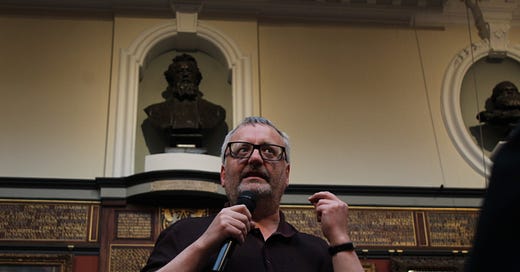



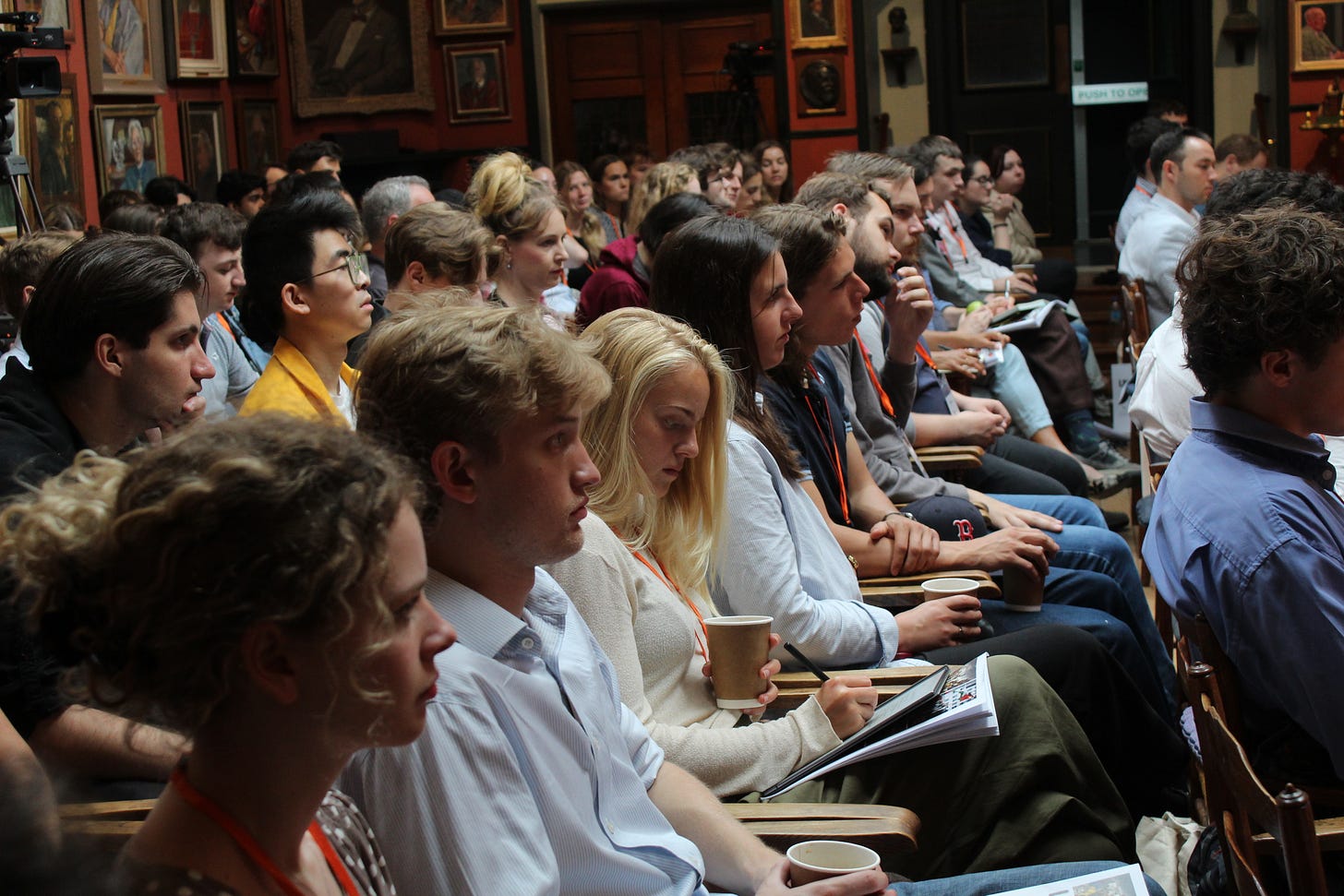
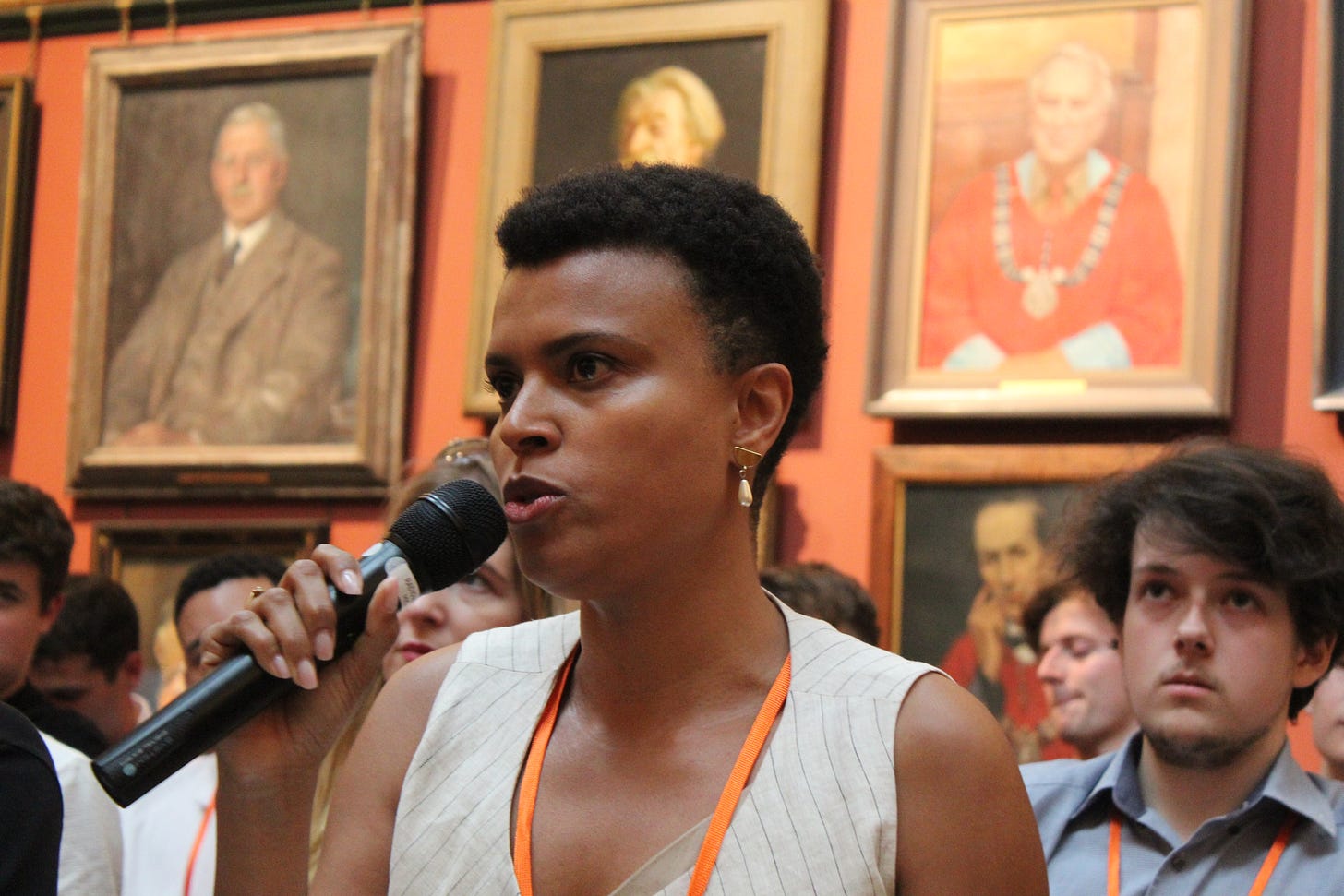
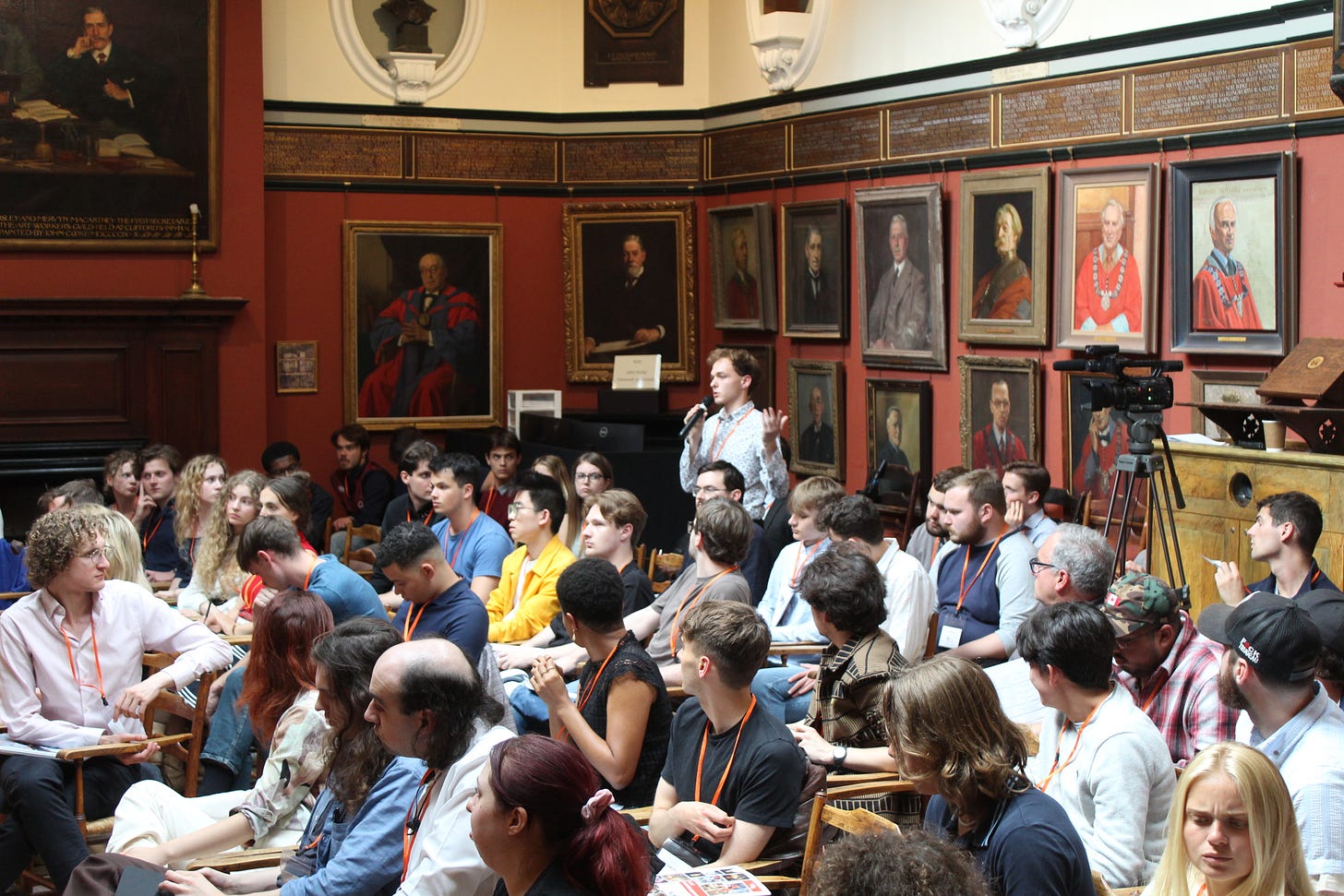
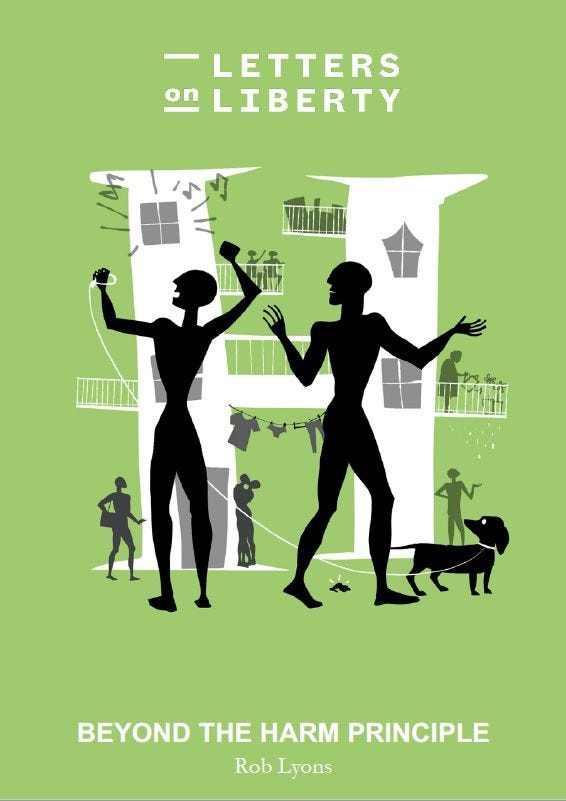
One further aspect is missing. The inability of people to look around them and see the impact of their behaviour on others. Call it lack of courtesy? Lack of awareness? Insensitivity?
Not something you can legislate for, but maybe something to be picked up through education?
Yes, yes, agree with all this or most of it. But it sort of doesn't get to the crux of the problem. Basically, if people are not interested in freedom of thought and expression, there's really no way to convince them. Bertrand Russell wrote (in "Practice and Theory"), "If a more just economic system is only attainable by closing men's minds against free enquiry. the price is too high". You either agree with this or you don't. Russell was writing in the context of Stalinist communism endorsed by the quasi-totality of the Left, especially by the Fabian Society. Today, it seems that the majority of people in the world DO NOT AGREE with Russell. Only prosperity matters, a viewpoint understandable in very, very poor third world countries but not elsewhere. The Chinese are almost entirely convinced by their present system -- because it has brought wealth. What is alarming is that the younger generation in the West is totally unconcerned about freedom of thought and expression and not only in politics, even scientists dare not challenge the fashionable views of the moment -- because they are afraid for their tenure or simply because they couldn't care less. Truth is not a value any more, only economic success. No party ever campaigns in favour of freedom of thought and expression -- because they all basically agree. And no scientific or technical job advertisement EVER mentions 'job-satisfaction', only payment and perks like pensions. When I pointed this out in the New Scientist about the best reply I got was "If we scientists were so keen on money, why aren't we lawyers?" To which the answer is that the abilities required of a good scientist are quite different from those required of a 'good' lawyer. (You lot wouldn't make it as lawyers.) By ordinary people's standards all academics are doing very well for themselves and they feel no compunction to strive for freedom of expression and truth. .